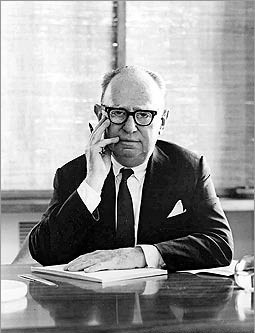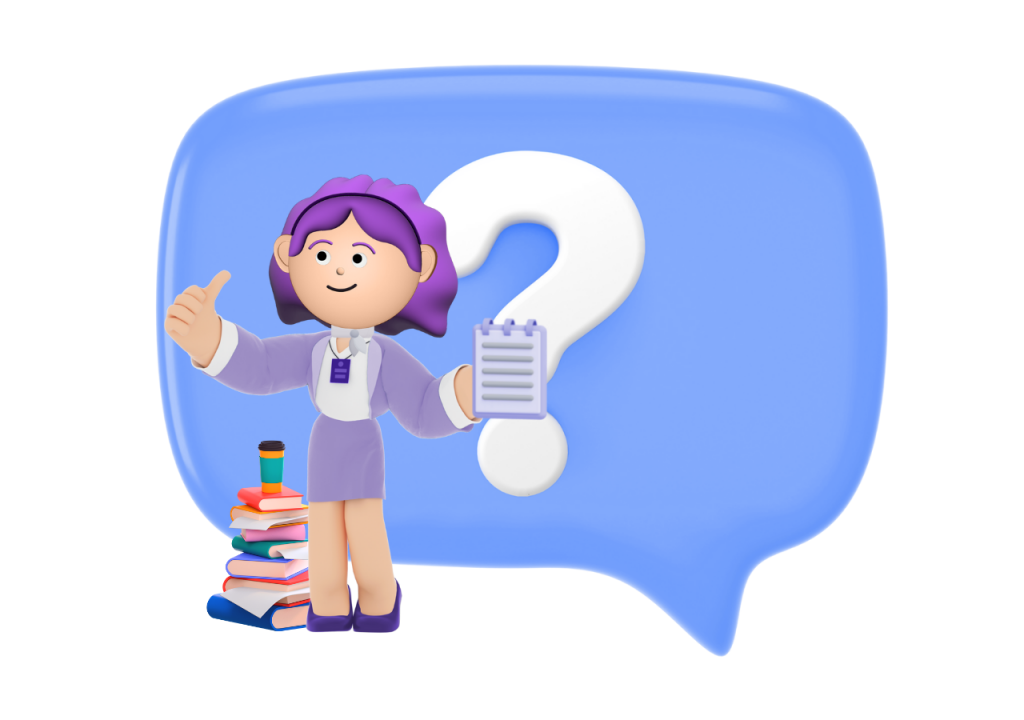Think about all of the different things that require a copy in the business world: blog posts, ads, landing pages, other web pages, mailouts, etc. Generic copies rarely make it to the top search results, not to mention the lack of substantial website traffic. But what about fully structured teams of skilled writers and editors ready to take on the job? That’s the joy of working with a copywriting agency.
In today’s article, we’ll talk about the ins and outs of SEO copywriting – various positions within the team, how they work together, advantages of cooperating with professionals, stumbling blocks, and everything in between. There is a lot to talk about, so no time to spare!
Table of Contents
Importance of Copywriting in Digital Marketing
Let’s start with the reasons to jump on the copywriting bandwagon.
Boosts Your SEO
Top-ranking websites have original, in-depth, and long-form content. This is what an SEO copywriting company will help you produce. Copywriters work closely with SEO requirements, helping them write texts that don’t need further optimization to perform well on search engines.
Makes Your Brand Recognizable
Half-empty websites look not only lacking but also close to scammy. That’s because professional-looking website design is only part of the equation.
Website content helps you establish your tone of voice – fun, serious, credible, either of or all of the above. Readers will learn to recognize your style and become more loyal (familiar brand = trustworthy brand). And for those visitors who are purely looking for information, the content will be a gateway to learning what your company does.
Makes You Money and Saves Your Money
Having established your brand and found your clients, a big part of the marketing job is done. Of course, it’s a never-ending cycle. And this is when your ever-green content comes into play – traffic of potential customers will continue coming in long after the article is posted.
If a visitor is compelled to stay on the page thanks to good content, they’re more likely to act. This wide net you cast with quality content has exceptionally good ROI.

The perfect balance of all four qualities – simplicity, memorability, noticeability, and entertainment – is hard to achieve. This is exactly why you can’t ask your average employee to write your copies. Yes, they are well-versed in the topic and understand your company’s business processes, but that doesn’t always translate well to text.
The Anatomy of a B2B Copywriting Agency
Despite the seemingly straightforward work process, a copywriting agency actually comprises multiple job titles. The idea is that having every workflow organized and interwoven with each other minimizes the time and overhead for a final product.
We’ve found that almost every project requires a team with the following structure.
Managers (Editors-in-Chief)

They are the primary contact between a client and an agency. Their job involves discussing the forthcoming project with the client and then communicating this information with the rest of the team. Chief editors give out assignments, oversee processes and deadlines, and overall, bridge the gap between the client writers+editors while keeping the spirits up of all parties.
If there are questions/edits/notes on either side, a manager is the one to convey it to the other side. Mind you, good studios might not even need it.
Writers

Are you worried that your company blog makes your readers snooze? Then here is how you avoid indifferent and dispassionate articles – professional niche copywriters. They specialize in just several topics or formats, allowing them to dive deeper and be more creative. These writers create sit-up-and-listen content and, most importantly, make it valuable for readers.
Editors

They work closely with writers to make sure they follow all specifications of the technical task, including the recommended structure, keywords, formatting, intent, overall message, etc. Editors act as a link between the writer and the editor-in-chief, sending edits to the first and final text to the latter.
Experts

Let’s say we have a technical copywriter who’s writing marketing materials like case studies, brochures, website copy, and product guides for technical/financial/other industries. While the text may be good enough, it can always be better. In our experience, the best result is ensured by a specialist with relevant, hands-on experience.
We have experts from different fields who help authors write strong copies that go beyond basic research. They can be an intermediary link at different stages – from initial project discussions to reviewing edit iterations.
Proofreaders

Proofreading is the big final check and polish before the text is sent to the client. Proofreaders look for typos, incorrect punctuation, other discrepancies in the grammar, and major inconsistencies. Generally, they do not change any of the content, especially after the text was reviewed by an expert.
All of these people play an indispensable part in creating content:
- Without a smart and attentive writer, there would not be high-value text.
- Without an editor, the client would have to meticulously check whether the writer followed the points of the technical task, included the keywords, and explored the topic to a meaningful extent all on their own.
- Without an expert, it would be difficult to fact-check information that the editor-in-chief might not be sufficiently versed in.
- Without a proofreader, there might be grammar and stylistic mistakes, especially the ones overlooked by grammar checker services.
The struggle of organizing and managing processes in a remote website copywriting agency is a whole other story, which you can learn all about in our Medium post.
From First Encounter to Finished Text: How a Copywriting Agency Works
It all starts with the client. They are the launch point of this complex mechanism of interactions, technical specifications, and the back-and-forth exchanges with the chief editor. Let’s pull the wraps off using an example.
A hypothetical client ABC wants to promote their company online. They need a competent article to publish on a large cryptocurrency portal. A semantic specialist collects keywords for ABC, an SEO specialist drafts requirements for plagiarism checks, text length, and other parameters.
Then ABC Reaches Out to a Digital Copywriting Agency
They share the technical assignment with the chief editor, who reviews the required volume of the text and estimates the approximate price bracket. Together with ABC, the manager discusses all the important details, for example, the target audience for the text – British, American, Australian, Canadian, or some other segment. This will affect the editor-in-chief’s choice of authors and editors. ABC makes the prepayment and goes on about their usual business while the agency works on the task.
Let’s Talk More About the Team Selection Process
We’ve already talked about our ground rule – to choose writers based on their specialization (even more, this point is often covered in our client case studies).
Now, for this example, the manager chooses writer(s) skilled in fintech and cryptocurrency topics. At the same time, they talk with an expert and let them know about the project and upcoming texts. Then, they select an editor and discuss optimal times to submit (if you read our Medium post, you already know about the intricacies of working in different time zones).
If needed, the manager also adds notes to the technical task for the writer. It may be something that the client talked about during a call or some personal insights).
Here Is What Happens When the Text Is Ready
The editor checks the text – whether it complies with the technical specification – and forwards it to the expert for fact-checking. There is no strict protocol for the expert, so the subsequent actions may vary. Sometimes, the expert adds a couple of examples from their own experience to liven up the text. Sometimes, they adjust or update factual statements.
Now, it’s the proofreader’s turn – they carefully check the text for errors to ensure correct grammar, clear syntax, and stylistic consistency. The chief editor looks over the final version, sends it to the client ABC, and after approval, the article can be published!
ABC then posts the article on the target page, let’s say the company’s blog, thus creating a new highway for incoming traffic and new leads.

People that are personally involved in creating a product – those inside the company – can often forget how potential buyers view it. Copywriters bring in the outsider’s perspective that may have been lost during all iterations of product development. Copywriters are also very familiar with marketing concepts – like target audiences and buying personas – so they will match the tone of the text to what readers will positively respond to.
Challenges That People Don’t Talk About

The sequence of events leading up to a polished text holds a few considerations that often stay behind the scenes. Yet they are no less important than all the obvious steps. Edits, financial matters, and comments from the client are commonplace in the everyday life of an SEO copywriting agency.
Edits
This word brings up bad memories for some people. But edits don’t always sting. Usually, clients make comments that align with the pre-approved technical task, so no edits out of the left field. The editor-in-chief receives the comments, forwards them to the performers, and supervises revision.
Direct communication with the manager is easier for the client. They don’t need to think about who to address – an author, an expert, or a proofreader. The editor-in-chief will understand whose area of expertise the edits are meant for and make sure they get the note.
Estimated vs. Final Volumes
The technical task includes an approximate number of words for the future text. These numbers can be based on similar texts by competitors. This establishes the framework for the text.
Authors always follow the text requirements, but the finished text doesn’t always precisely correspond to them. The final volume, after edits, revisions, etc., can be higher or lower than expected. Therefore, after a client approves the text, the editor-in-chief will match the volume of the final article against the estimates.
This information is included in the reports (often in spreadsheets) so that all charges are transparent for the client. The total volume may be covered by the prepayment or not. And this must be taken into account from the client’s side: the prepayment amount is not the final cost of the task, so be prepared for adjustments.
Underpayments and Overpayments
Additional payments after the final approval are a regular thing, which isn’t a surprise to either party. Typically, they are not substantial: a miscalculation of 100 words is considered standard for smaller texts. It’s a different matter when the initial calculation of the volume turned out to be vastly incorrect. The editor-in-chief always discusses such situations with the client: if the text doesn’t fit the supposed budget, some parts may need to be removed from the text.
But! Good authors never resort to filler text. So, simply cutting up the text – removing several sentences from different paragraphs – will not work. In most cases, the client agrees that the extra volume adds value to the text and pays the difference.
The opposite can also be true. The prepayment may be higher than the final cost of the task. Then the editor-in-chief offers two options: set aside the amount for future tasks and avoid back-and-forth payments, or return it to the client. The first option is more common.
Is Hiring a Freelance Copywriter Worth It?
Let’s say you already agree that content creation – no matter if it’s for a blog, landing page, or third-arty publications – needs to be delegated. A business owner writing blog articles is, of course, commendable but also excessive. Now, the question is who to delegate it to.
Should you give the task to a freelancer or contact a copywriting studio? All clients have their preferences, but we tried to gather unbiased pros and cons of working with both. To start off, we’ll look at freelance copywriters and their contributions to business operations.
You can find copywriters on platforms like Upwork, social media like LinkedIn, personal connections. There are versatile authors, but we’re mostly interested in those with niche expertise. But in either case, the key elements of cooperation stay the same.
Pros
More affordable. At least, in most cases. You pay the person right away and pay for only one service – writing. No editing, proofreading, fact-checking. That said, an experienced copywriter can be expensive, with the starting rate of $75+ per 1000 words going into hundreds.
Fast results. You can often bypass the contract stage and simply agree on the terms of cooperation. The writer receives the advance payment and starts writing. Assuming that you find a competent author quick enough.
Flexible adaptation to your requirements. You will introduce a new member to your project so that they produce precisely the kind of content you need. Over time, you may be able to achieve efficiency and closeness. Many believe that this will minimize factual mistakes (whether you agree with this statement is up to you).
Cons
It’s hard to find a good writer. Yes, there are numerous services with thousands of copywriters. The one we mentioned, Upwork, features 55 thousand writers. A good writer who: a) understands your field, b) follows deadlines, c) is a good communicator, d) submits genuinely good articles, these workers are rare. There are few professionals, and since they know their worth, they charge a lot. That is, the main advantage of working with freelancers – the low rates – becomes a disadvantage.
Unreliable quality of articles without an editor. Even talented writers need an editor and proofreader. This becomes especially important as you scale up your content production. Bear in mind that the cooperation of authors and editors can extend your content budget.
Flexible adaptation to your requirements. You will introduce a new member to your project so that they produce precisely the kind of content you need. Over time, you may be able to achieve efficiency and closeness. Many believe that this will minimize factual mistakes (whether you agree with this statement is up to you).
A lot of effort. You need to spend your time looking for the right author and communicating with them. And, most likely, that time can be spent otherwise – improving your product/service, expanding business operations, etc.
Clients also note the following inconveniences: freelancers are notorious for disregarding technical tasks – they simply ignore some requirements. This increases the number of iterations and edits and the time it takes to create one text.
Are Agencies Better Than Freelancers and In-House Writers?
Let’s talk about a freelance copywriting agency, shall we? Not to be confused with individual freelancers covered in the previous section. There are also a few things to be said about agency vs. hiring a full-time writer. However, freelancers and writers on staff are similar, so we’ll mainly focus on agencies.
As we talk about a copywriting agency (company, studio, etc.), we are referring to a team of writers, editors, experts, and an editor-in-chief. Here is why many clients prefer when the chief editor from an agency forms a team specifically for the project in hand.
5 Factors Pushing Companies to Work With an Agency
- Delegated selection process (among everything else). The editor-in-chief will do it for you – assemble the team (of Avengers, if needed☺) that perfectly matches your product offer, topic, format. As you can guess, subsequent content creation stages are also covered.
- Consistent quality. Each text is created by a whole expert team. Before making its way to the client, it goes through several checks by an editor, proofreader, and expert. By the end, you have an excellent product in terms of content and SEO requirements.
- Ease of communication. Clients and writers don’t speak the same language. Not always literally – they sometimes don’t understand each other. Clients may not know the specific terms to explain what they need, while writers may not be able to solve crises and respond to complaints. A manager can handle both sides.
- No need to explain technical requirements. An agency is a well-oiled machine where members learn how to understand each other on the fly. All you need is to find your groove with the chief editor – that’s easier than training multiple people on staff.
- There are guarantees. Studios always strive to develop long-term relationships with clients and value their reputation. Should any disputed situations arise, they will be resolved peacefully. Plus, there is a contract.
One additional note about edits: freelancers don’t view edits as a priority. They are much happier to work on another text (possibly, from a different client). It sometimes takes a lot to convince them to revise. With an agency, on the other hand, an editor-in-chief will ensure that you receive the text with all the corrections at the agreed time.

Competent writers don’t need to embellish or overstretch facts. They are skilled enough to look at a product or service and figure out exactly what features to highlight. They will be kind and gracious, but it won’t involve misleading readers into buying. Quite the contrary – it will involve presenting the truth in a way that will persuade you to buy your own product.
The Point of Congestion
Price. Yes, the best copywriting agencies usually have higher rates than individual copywriters. But there is a good reason for that – you’re paying for an entire up and running editorial team. Should we remind you that you get a well-written text by a competent author, checked by an editor for SEO requirements, fact-checked by an expert, and proofread for grammar?
The price you pay for streamlined processes is worth it, not only in theory but also according to our clients. See for yourself – just send us an email or a message to the chatbot, and our editorial team will quickly get the process started.
Hottest Copywriting Niches in 2022

Simply put, the ratio of demand to supply makes a niche hot and fresh. Though the same niche can have variability – depending on clients to clients and projects – some fields are notoriously competitive. That is, there are many companies fighting for consumers’ attention and not many qualified copywriters to make attention-worthy content.
Let’s talk about two prime examples – fintech and IT.
Financial Copywriting Agency
The fintech market can be segmented into API, AI, blockchain, distributed computing big data, process automation, etc. And in each category, there is a need for sharp, relevant content. This search calls for a dedicated remote crew, the one assembled based on the project’s requirements to write:
- White papers
- Case studies
- Press releases
- Interviews
- Presentations for investors
- Price predictions
- News
- Educational materials
If you operate in this business segment, rest assured knowing that we speak your language. But most importantly, we also speak the language of your audience, be it retail clients or large corporations.
IT Copywriting Agency
Experts have never been as optimistic about digital market prosperity as in 2022. Gartner analyzed the sales by thousands of vendors across the entire range of IT products and services and forecasted a 5.1% growth in spending this year. So, if you haven’t already invested in IT content, it’s not too late.
There are overlapping types of content between fintech and IT, so let’s only name the ones we haven’t already mentioned:
- Product use cases
- Landing pages
- Expert blog articles
- Ebooks
- Pitch decks
- Guest posts
- Push notifications
Сopywriting Services for Small Businesses
It’s possible that these past two years have made a long-term dent – many are still dealing with supply chain disruptions and even closures by policy mandate, downward demand shifts, and health concerns. Small businesses can’t rely on the brand carrying them through these tough economic times. We found that making strategic efforts to grow online is always worth a try.
As you remember from our discussion on freelance and in-house writers, they can be more pain than gain. And even if you convince your employee to write something for you, it may not render the results you want.
The latest reports show that over the past 12 months, the number of internet users has grown by about 8%. So, whether you’re looking to attract local customers or anywhere else on the globe, your audience is online. This is where you should channel your message and expertise – online.
As a small business with a small team (at least, for now), you’re probably used to outsourcing talent. And since content production is not like a building contractor or network provider, you don’t need a ‘copywriting agency near me’ – we can work with you wherever on Earth you are.

Copywriting drives a lot of knowledge from customer service. World-class customer service is about treating humans like humans, and so is copywriting. For example, еhe goal of both is to answer the customer’s need and make them feel heard.
What Makes Great Copies: Top Copywriters in the World and Our Approach
Eugene Schwartz, who famously worked only three hours a day (a dream come true), once said: “I write with my ears.” He wasn’t talking about the rhythm or musicality of text. Schwartz was talking about listening. To a client – what makes the product unique, who it’s for, etc., and to customers – what they need. Then the copy writes itself. That has been Contenteam’s method from day one – closely working with clients (messages, calls, interviews) and being the reader’s friend.
Victor Schwab was one of the first copywriters to talk about calls to action. Without making it too intense, we sprinkle in CTAs as advice. After all, you shouldn’t expect readers to pick up barely noticeable suggestions – if you want them to click a link in an email to read your latest blog post – you have to put yourself out there.
Lastly, David Ogilvy has a blunt yet truthful quote: “The consumer isn’t a moron”. Users want respect. That means giving them the right information to make up their minds, ditching the condescending tone (even if you know more than them), and not resorting to trickery. Basically, the attitude you show to the audience is what you’ll receive in response.
Final Takeaway
Here is a brief overview of what you should know about a web copywriting agency:
- Tasks coordination happens between a manager from an agency and a representative from your company. This is a much better way to communicate than with all contributors separately.
- Once an agency sets up a team specifically for your project, they will get up to speed with your brand or business.
- There are (usually) many skilled individuals on hand. Their minds are fresh and always moving, and their exposure to a wide variety of businesses and industries provides them with a unique perspective.
- There is a negotiable price in place that depends on the task specifics.
- Writers and experts are responsible for research and fact-checking, while editors and proofreaders are responsible for errors and SEO requirements.
- Their minds are fresh and always moving, given that they are exposed to a wide variety of businesses and industries.
- An agency handles (and pays) for its own tools and training, relieving the need for additional expenses from the client’s side.
- By partnering long-term, relieving the need becomes an extension of your company. Down the line, knowing the nuances defining your field and business speeds up content creation.
Need high-quality content on a consistent basis? Then let us become that invaluable extension of your brand and show you that content is indeed king. All the benefits discussed in this article were pulled from our experience. So, it’s not just a baseless list – it’s something that Contenteam is happy to provide for your business.
FAQ
What are copywriting services?
It refers to a company that produces informational and/or persuasive marketing and promotional materials. A third-party copywriting agency allows businesses to delegate the task of content creation, including writing/editing blog articles, ad copies, landing and sales pages, newsletters, product descriptions, etc. Just like other types of outsourced work, these agencies draw on the niche skills of experts in certain fields, not necessarily present in the client’s core team.
How does a copywriting agency work?
From the client’s perspective, the process is straightforward. They approach a copywriting agency and start communicating with the project’s manager (editor-in-chief). They discuss the specifics of the task, deadlines, and rates, and the bulk of the work commences after the prepayment. Once the text is finished, they review it, discuss edits with the manager (if necessary), and approve the work.
Internally, there are many more processes going on. The chief editor assembles the team specifically for each project and not only communicates all important information from the client but also coordinates the work of everyone involved. This includes writers, editors, experts, and proofreaders).
How to get copywriting work?
Freelance copywriters can sign up on online platforms like Upwork and update their LinkedIn profiles. Alternatively, you can join our editorial team. Send us your CV and cover letter, and let’s talk!
How to pitch copywriting services?
Whether you’re the one doing the pitching or the one receiving the pitch, we can all agree that sending out mass email pitches will never work. Here is a recipe for copywriting success: take the time to do the research, convey the value you can contribute, show your differentiator, and don’t be entitled.
How much does it cost to hire a copywriter?
The cost can be anywhere from $25 to $25,000 per page. Of course, you don’t have to fall on either extreme. But if you consider hiring a freelance copywriter at the lower rate range, keep in mind that there won’t be editors/proofreaders/experts included in the price. All-in-one website copywriting services usually offer a better value for money.
What are technical copywriting services?
Technical copywriting services can create readable content on highly technical subjects, such as IT. These tasks require in-depth research and often – practical experience (which is what experts are for). And no matter how complex the topic is, a technical writer’s goal is to package it into approachable content – after all, most types of content are meant for casual readers and not industry experts.












